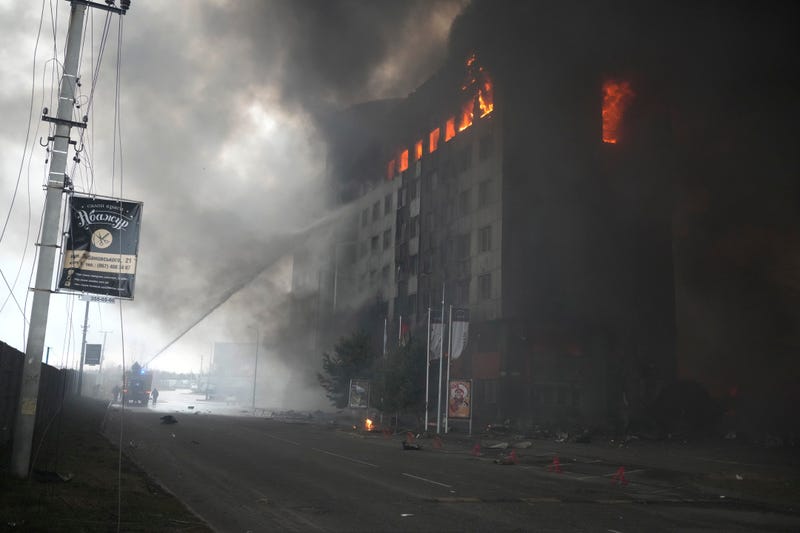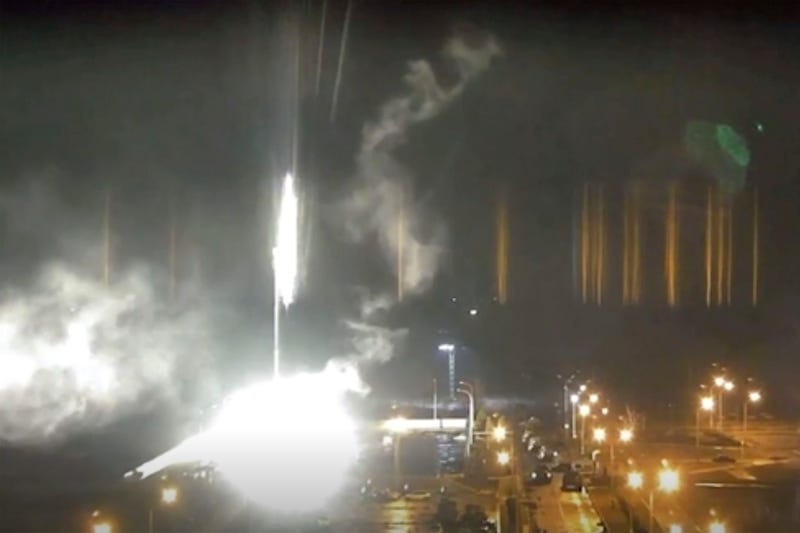
NEW YORK (1010 WINS/AP) -- After causing worldwide concern, a fire at Europe’s largest nuclear plant that was ignited by a Russian attack was extinguished Friday and no radiation was released. It came as Russian forces pressed their campaign to cripple Ukraine despite global condemnation. With the invasion in its second week, another round of talks between Russia and Ukraine yielded a tentative agreement to set up safe corridors to evacuate citizens and deliver humanitarian aid to the country, from which more than 1 million people have fled since last week.
Friday, March 4, 2022
7 a.m. - Fire at Europe’s largest nuclear power plant out after fighting
Ukrainian authorities said Friday that a fire at Europe’s biggest nuclear plant ignited by Russian shelling has been extinguished after fears of a nuclear disaster.
The head of the United Nations’ atomic agency said that a Russian “projectile” hit a training center at the Zaporizhzhia plant. Ukrainian officials have said Russian troops took control of the overall site, but the plant’s staff are continuing to ensure its operations. International Atomic Energy Agency Director-General Rafael Mariano Grossi sad that Russian forces were at the plant, but the Ukrainians were in control.
Ukraine’s state nuclear plant operator Enerhoatom said that three Ukrainian soldiers were killed and two wounded in the attack. Grossi said two people were injured in the blaze that broke out.
Ukraine’s state nuclear regulator earlier said that no changes in radiation levels have been recorded so far after the plant came under attack. Grossi later said no radioactive material was released.
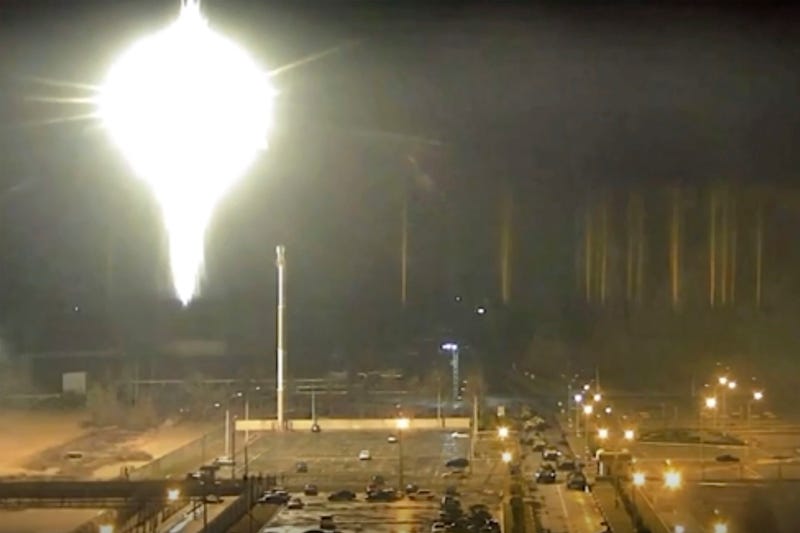
Initial reports conflicted over whether one or two fires broke out at the plant in the city of Enerhodar. Nuclear plant spokesman Andriy Tuz told Ukrainian television overnight that shells fell directly on the facility, and set fire to reactor No. 1, which is under renovation and not operating, and to an administrative training building.
On Friday morning, officials only referenced a blaze at the training building when they said that all fires at the plant were out — which Grossi also confirmed. The regional military administration reported unspecified damage to the compartment of reactor No. 1, but said it does not affect the safety of the power unit.
The nuclear regulator said staff are studying the site to check for other damage.
Grossi confirmed Friday that the building hit was a training center and “not part of the reactor.” He said he did not know what hit the plant but called a “projectile” from Russian forces.
He said that only one reactor at the plant is operating, at about 60% capacity.
The attack caused worldwide concern — and evoked memories of the world's worst nuclear disaster at Ukraine's Chernobyl. It was the second time since the invasion began just over a week ago that concerns about a nuclear accident or a release of radiation materialized, following a battle at the Chernobyl site last week.
In fact, Ukraine’s state nuclear regulator noted in a statement on Facebook the importance of maintaining the ability to cool nuclear fuel, saying the loss of such ability could lead to an accident even worse than the 1986 Chernobyl disaster or the 2011 Fukushima meltdowns in Japan.
The shelling of the plant came as the Russian military advanced on a strategic city on the Dnieper River near where the facility is located, and gained ground in their bid to cut the country off from the sea. That move would deal a severe blow to Ukraine's economy and could worsen an already dire humanitarian situation.

6:45 a.m. - Zelenskyy wants no-fly zone after nuclear plant scare
Ukrainian President Volodymyr Zelenskyy wants a no-fly zone to be imposed over his country in the wake of Russian shelling of Europe’s largest nuclear plant.
The attack on the Zaporizhzhia plant did not produce elevated radiation levels, but Zelenskyy on Friday evoked the 1986 Chernobyl nuclear plant explosion and fire to raise alarm about further attacks.
The plant “could be like six Chernobyls. The Russian tanks knew what they were shelling ... This is terror on an unprecedented level,” he said.
Any attempt by European air forces to impose a no-fly zone would likely severely escalate the conflict.
Zelenskyy also called on Russian civilians to express outrage about the plant attack.
“Radiation does not know where the Russian border is,” he said.
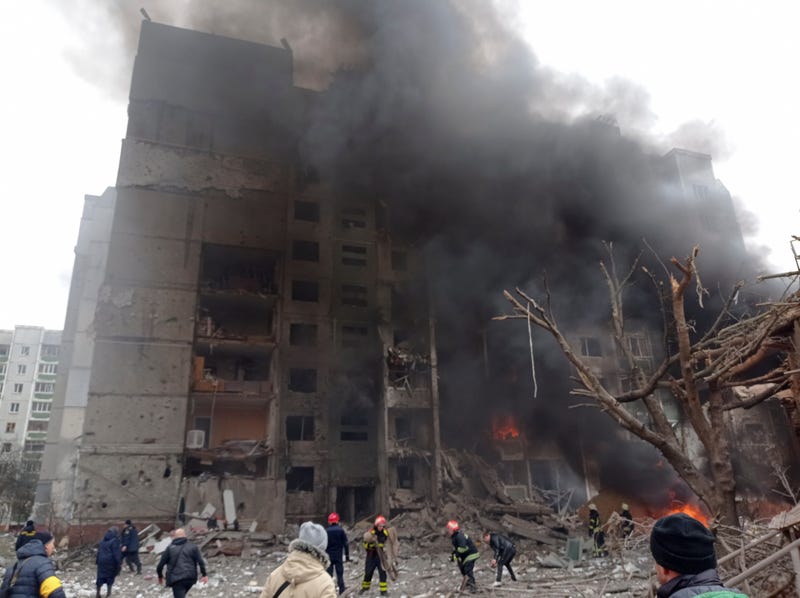
6:30 a.m. - UN Human Rights Council votes to monitor human rights in Ukraine
The U.N.’s top human rights body has voted overwhelmingly to appoint a three-person panel of experts to monitor human rights in Ukraine, where Russian forces are invading.
The Human Rights Council voted 32-2, with 13 abstentions, to pass a resolution that was presented by many Western countries and others who have spoken out against Moscow’s attack on its neighbor.
Only Russia and Eritrea opposed the resolution, with China abstaining.
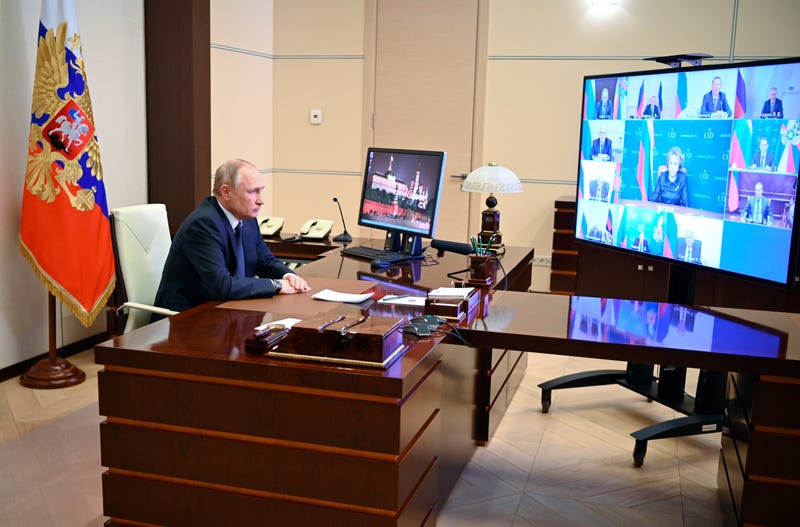
6:15 a.m. - Russia threatens 15-year jail sentences for “fake news” about Ukraine war
The Russian parliament has passed a bill introducing sentences of up to 15 years in prison for intentionally spreading “fake” information about military action.
Russian state news agencies reported Friday the passing of the bill in the third and final reading.
The development came amid a crackdown by Russian authorities on independent media and criticism of last week's invasion of Ukraine.
The bill now heads to the upper house of parliament, whose approval is expected to be a formality, before President Vladimir Putin can sign it into law.
Duma Speaker Vyacheslav Volodin says it may enter into force as early as Saturday.
Spreading what Russian authorities deem to be false information is punishable by up to three years in prison, or 15 years if it is deemed to have “severe consequences.” The bill also bans calling for sanctions to be implemented against Russia.
Less than two hours after the bill was passed, news website Znak said it was shutting down, citing “the large number of restrictions which have appeared recently affecting the work of media in Russia.”
Russia’s top independent radio station Ekho Moskvy was closed Thursday and independent TV station Dozdh ceased operations after receiving a threat of closure from the authorities.
The Associated Press contributed to this report.
